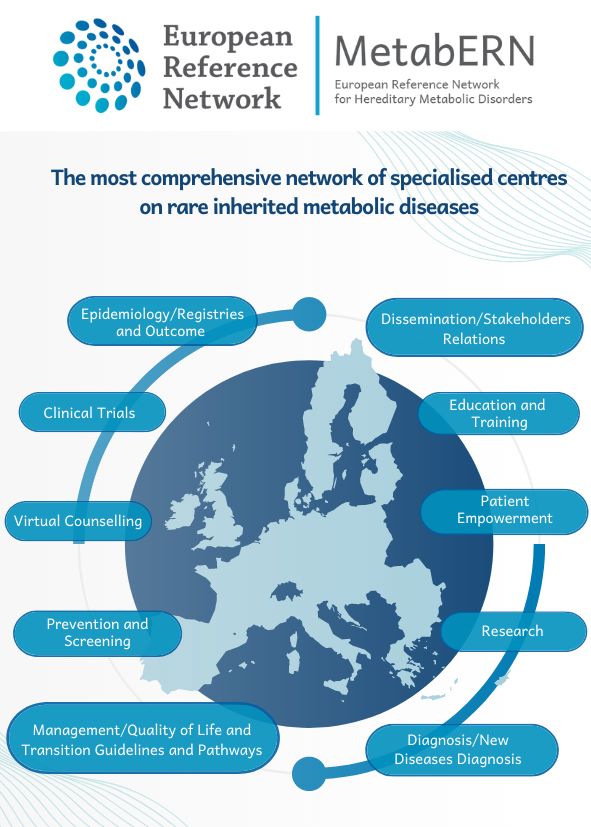METABERN

The B4B Foundation is one of the major promoters and collaborators of the European Reference Network for Inherited Metabolic Diseases (MetabERN).
 MetabERN is a European non-profit network established by the EU to facilitate access to the best available care and address the needs across the border of all patients and their families affected by inherited metabolic rare diseases. MetabERN is driven by the principle of patient-centred care to provide its services, aiming to improve patients’ and families’ quality of life.
MetabERN is a European non-profit network established by the EU to facilitate access to the best available care and address the needs across the border of all patients and their families affected by inherited metabolic rare diseases. MetabERN is driven by the principle of patient-centred care to provide its services, aiming to improve patients’ and families’ quality of life.
MetabERN aims to connect the most specialised centres on inherited metabolic rare diseases to promote prevention, accelerate diagnosis, and improve care standards across Europe for patients living with inherited metabolic rare diseases. MetabERN is entirely led by patients and experts. By combining patient experience and expert knowledge from across the EU, we aim to capture the most innovative medical advances and tailor them to patients’ needs.
The network represents 92 nationally certified Healthcare Providers and 44 Patients Organizations from 27 European Member States. It is endorsed by the Society for the Inborn Errors of Metabolism (SSIEM) and currently provides treatment to more than 80.000 metabolic patients and engages 3,000 professionals.
For more information:
MetabERN Project Website: www.metab.ern-net.eu
Contact:
Dr. Maurizio Scarpa
MetabERN Coordinator
Brains for Brain Foundation
Via Giustiniani 3, 35128 Padova, Italy
Tel: + +39 348 0330390
Email: maurizio.scarpa@metab.ern-net.eu
